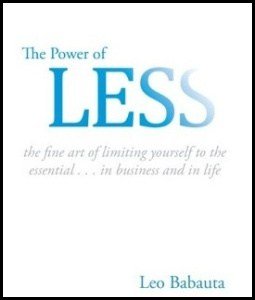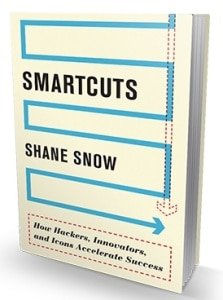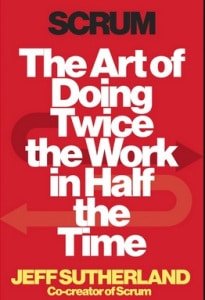Honestly, Decisive changed my life. It changed how I make decisions. And it changed my heart.
Decisive teaches how to make outstanding decisions. But more importantly, it teaches how to be at peace with your decisions!
And I’m embarrassed to say: had this surprisingly helpful book been written by anyone other than the brilliant Heath Brothers, I never would have read it. A book on a process?! Please. Dull!
Wrong, Tim.
The Heath Brothers win a lot of awards (top 26 of “Customer Favorites” on amazon; best business book of the year; see http://heathbrothers.com/books/made-to-stick/). That’s because they report brilliant ideas—and they wrap them in amazing stories. They also wrote two other beloved books: Switch: How to Make a Change When Change Is Hard) and Made to Stick: Why Some Ideas Thrive and Others Die. Always fun, the Heaths have heart, and they put your brain in high gear.
So, how did Decisive work it’s way into everything I do?
Decisive made me realize: I have no method for making decisions. In fact, when they described what they called “The Four Villains of Decision Making,” I realized, “I succumb to all of these—and all the time!”
Because as the Heaths point out: “If you think about a normal decision process, it usually proceeds in four steps.”
- You encounter a choice.
- You analyze your options.
- You make a choice.
- And then you live with it.”
Uh oh: here come the villains, afflicting each of these four stages:
“1. You encounter a choice. But narrow framing makes you miss options.
“2. You analyze your options. But the confirmation bias leads you to gather self-serving information.
“3. You make a choice. But short-term emotion will often tempt you to make the wrong one.
“4. And then you live with it. But you’ll often be overconfident about how the future will unfold.”
I’ll explain the nature of these problems as I outline the Heath Brothers’ solution.
The solution goes by the acronym WRAP.
WRAP stands for:
- Widen Your Options.
- Reality Test Your Assumptions.
- Attain Distance Before Deciding.
- Prepare to be Wrong.
- Widen Your Options
It’s normal for all of us to miss great opportunities. Like me, have you done this? Naturally, I only consider two options—or I get lost a blizzard of 31 flavors.
Given two choices, most of us become indecisive—because we sense that both options are defective.
Or if we think we could do “anything,” the thousands of possibilities paralyze us. Either way, perhaps subconsciously, we sense we’ll make a poor decision.
Examples. Have you ever watched an 18 year old spend over a year trying to decide if they should stay with someone else or break apart—only to find that when they move to a new town (they go off to college; they meet a whole new circle of friends) that they break up within a week?
When one person was the only option, the unhappy couple stayed together—but did little to make the relationship better. (That would have been option #3; “stay or go” constitute #1 and #2.) But in the college town, abruptly, they see Options #4, #5, & #6.
In a similar way, have you ever had a friend who spent thirty minutes ordering from an ice-cream shop? 31 flavors cause brain-freeze.
The Heaths give you strategies to generate five to six viable options. Once you’ve done that, it’s actually easy to select the one you love the most—all without misgivings.
- Reality Test Your Assumptions.
Once upon a time, I used to overanalyze my options to death.
This is paralyzing. We try to play out every possibility in our mind. It takes forever. It’s exhausting. And it turns out—it’s almost always useless!
That’s because without any actual experience, we don’t know nearly enough. Instead, we should imitate the ice cream shop.
They don’t describe the 31 flavors. They don’t ask you analyze them. They give free samples. Then you can discuss—because you have knowledge!
Five samples in, you usually find making a good decision easy.
The Heaths give a dozen ways you can sample things first. One of my favorites is to ooch. It amounts to sticking your toe into the water. If you like it, jump in!
Personal example. As a teen, I was hopelessly indecisive about what to do with my free time. My parents nudged me into contest speech. But they didn’t say, “All or nothing.” They allowed me to ooch—to try it for two weeks and see if I liked it. (They knew I’d hate the first three days.)
On day four, something magical happened. For five vivid minutes, I abandoned the shyness I’d wrapped myself in like an Invisibility Cloak since kindergarten, tossed caution aside, and let my heart leap into the performance. I felt like I was overacting—but I felt like Captain Kirk! Masculine! Charismatic! Making myself happy and pleasing everyone!
I felt bliss.
That moment helped a shy teen connect with other people—for decades. Had I just thought about it, I know I would have decided to never do it.
Ooch your way in with trial periods. My parents would have let me resign after a two-week trial period. But I must add: had I asked to quit after that, they would have said no: the trial period is over, and we need to train you to honor your commitments.
- Attain Distance Before Deciding.
Have you ever seen a couple date for three months, get engaged, make it Facebook official, send out save-the-dates—and then cancel the wedding?
We all know short-term emotion can be misleading. What feels like true love—so right!—melts as we learn more about ourselves and others.
I’ve done it, too, and not just with minor things, like with cartons of ice cream. At the time, every carton felt like a great idea. But if I could get 95% of that money back…and never have to deal with all those junk calories…
Attain Distance Before Deciding says Grandma–who said, “Sleep on it”—was right. But wait—Grandma & the Heath Brothers have more!
Simple & Gorgeous Idea #2: Honor your core priorities.
Sounds simple—except we live in the Digital Age. The Age of Distractions; the Age of Splitting our Attention/Sanity Ten Different Ways.
Core priorities might be things like God, family, friends, an excellent project….
Personal example: When it comes to eating out, I attained distance before deciding long ago.
No matter where I eat, I already know what to get: the Paleo option.
So, when I see the red velvet cheesecake, it’s effortless to say no, because my core priority is: “Turning my body into a useful instrument so I can better serve everyone around me.” This way, the scoreboard always reads:
My health & Goodness for Others 50, Short-Term Emotions 0.
- Prepare to be Wrong.
I’ll admit it: I never saw this chapter coming.
Like most people, after I’ve “encountered a choice” (#1), I’ve tended to “[over-]analyze my options” (#2)–sometimes for months!—then usually made the wrong choice (#3), and then suffered through “living with it” (#4).
And—if you’re like me: living with it has often been Hell.
4a. We Need to Prepare
The Heaths, instead, essentially point out that we need to prepare for when our decisions turn out one of three ways:
+ Better than we anticipated;
+ As anticipated; or
+ Worse than we thought.
Of course, there’s more to it than that. But let me illustrate with an example, straight out of a Choose Your Own Adventure book:
After much thought and some anxiety, your friend Caitlyn moves to a new city to take a new job.
If it is twice as good as she dreams, comes with a raise, and she meets the man of her dreams, turn to page 777.
If she likes it fine, gets offered a 3% raise after a year, and joins a sports rec league, turn to page 5.
If she gets fired three months after her move, turn to page 13.
Most of the time, the Caitlyns in our lives simply “make a choice and live with it” (Step 4).
But had she “prepared to be wrong,” Caitlyn might already know how to feel and what to do, no matter what happens.
4b. Set a Tripwire
The last chapter of “Prepare to be Wrong” discusses the strategy I love most of all: setting a tripwire.
Ever taken a job that’s gotten just a little worse for six weeks in a row…but you just don’t know because this was supposed to be your dream job. Should you stay, go, or renegotiate?!
Or have you ever invested in a company only to have it soar to the target price ahead of time? Is it overvalued? Should you sell? Or let it ride?
Or every other time you invite a friend to a BBQ, they zig, zag, dance, dodge, accept, hedge, evade, endorse…. They affirm and they reject–but they’re so much fun. Should you invite them again?
The Brothers recommend: set a tripwire.
What’s a tripwire?
Their example involves rock star David Lee Roth of Van Halen. In this incredible story, Roth wrote in their contract with stadiums and other performance venues that they would not play—and demand a penalty fee—if the venue did not supply a bowl of M&Ms with all of the brown ones removed.
The brown M&M clause was buried in the microscopic fine print, on page 12 of the contract.
The Heaths build the story up beautifully. The reader thinks, “What a prima donna! Spoiled rock star.” Until they explain:
This was the 1980s, the era of dangerous pyrotechnic rock shows. In that era, Michael Jackson’s hair caught on fire. One slip up and someone could literally get torched.
So, David Lee Roth & the Van Halen were smart enough to know what they did not know. And they did not know technical specifications. So, Roth set a tripwire. If he say a brown M&M in the bowl, that meant: They didn’t read the contract. Which meant: what else did they not do? Which made him ask: Are we going to die in a fireball?
Show canceled.
A tripwire lets you know when to resign (or renegotiate) a job…when to sell a stock…when to keep/stop inviting a friend who—for their own strange reasons—never says if they’ll attend. A tripwire lets you know if you should stay in, or go out.
How I’ve Used Decisive.
I’ve incorporated it into many aspects of my life. Instead of looking for the one perfect answer, I’ve found that actually stifles creativity and cuts short opportunities. Instead, I now write down 5 or 6 viable alternatives. (Psychologists have found this is the right number; less stunts creativity and causes poor decision making; 7 or more creates decision paralysis).
Once I’ve selected, it’s time to begin experimenting. After that, when I’ve made my choice, it’s easy to “Prepare to be Wrong” because if something proves faulty, I already have an exit strategy. Not to mention 4 or 5 previously developed options.
News You Can Use.
Save time: When you’re confident that you’ve selected the best option from 5 or 6 well-developed, viable choices, you can move fast, with confidence.
Save money: Use Decisive to comparison shop. For example, look at 5 or 6 cellphone plans—then choose. You can even use your research to negotiate with your first choice for a better deal.
Reduce stress: When you make major decisions, you can do what people like Richard Branson (founder of 400 companies) always emphasize: you can protect your downside. How easy is it to move forward with confidence when you’ve already “Prepared to be Wrong”? You’ll be that person about whom others say, “S/he thinks of everything!”
Conclusion.
The Heath Brothers are warm, funny, great storytellers, and they will make your life better. That’s why I read Decisive six times, internalized it, and teach this method to my Personal Finance students. After all, I want to give back.
P.S. I never even discussed “the Confirmation Bias,” one of their major targets of bad thinking. Unfortunately for all of us, it’s a naturally occurring psychological hiccup. CB is when we keep looking for evidence that supports what we believed in the first place—and screen out anything that contradicts our beliefs. It’s like hitting the gas and ignoring the signs that say BRIDGE OUT AHEAD.
For example, have you ever met someone explain their nine reasons why they’ll never be able to quit smoking? Then next year, your friend quits.
“How’d that happen?” you ask, and you wonder: what happened to their nine reasons?
“I just felt like quitting.” They shrug. Now the only thing that’s smoking is the burning husks of their Confirmation Bias.
For this psychological nugget, and forty other amazing insights, I suggest: go to heathbrothers.com. You will love them!
Source: Tims Old Blog






0 Comments